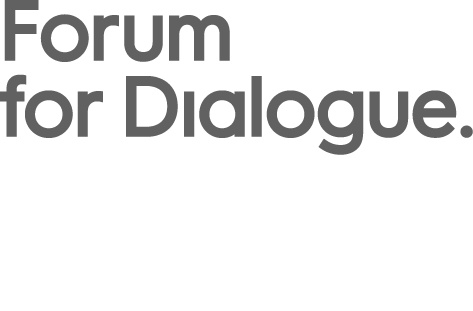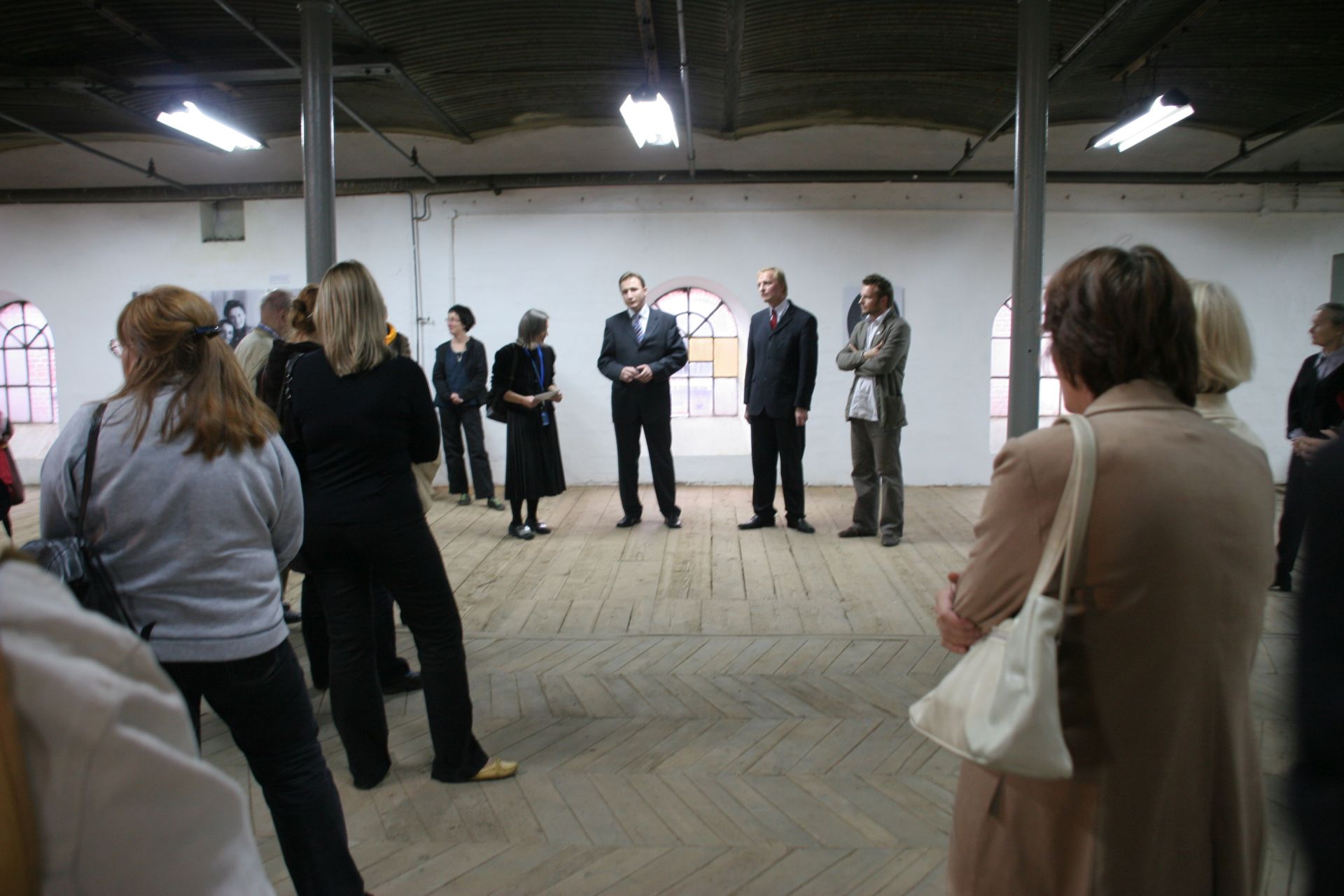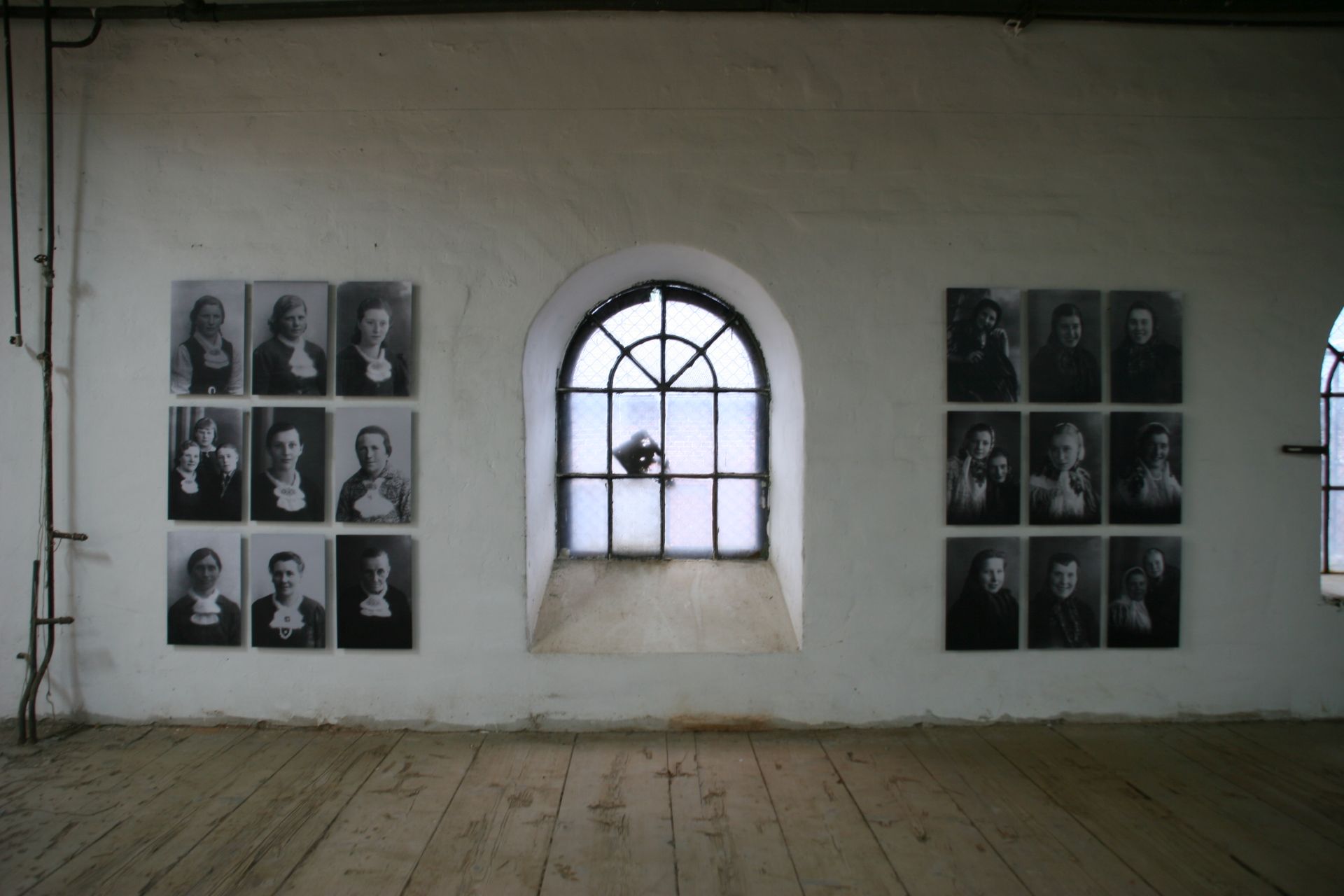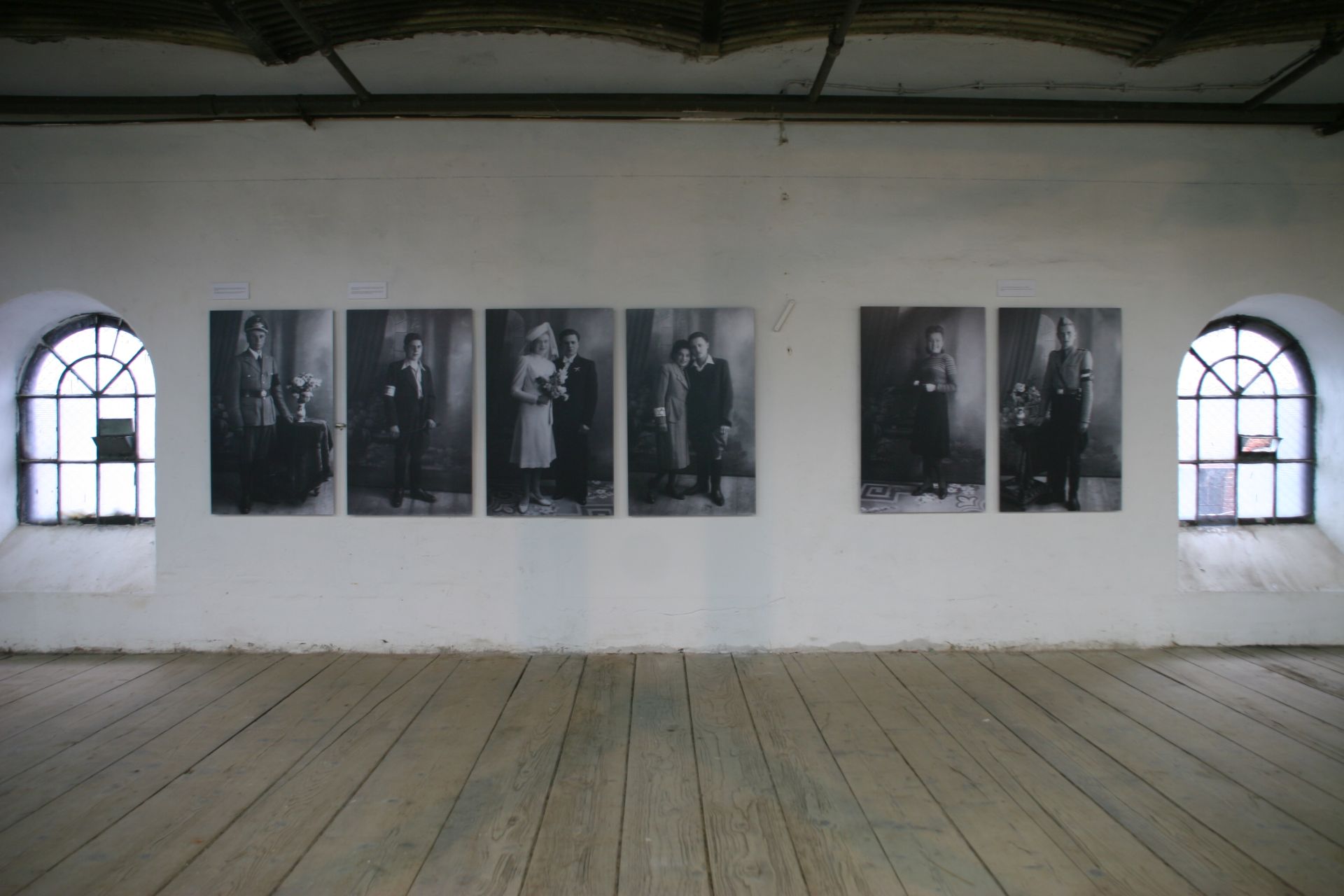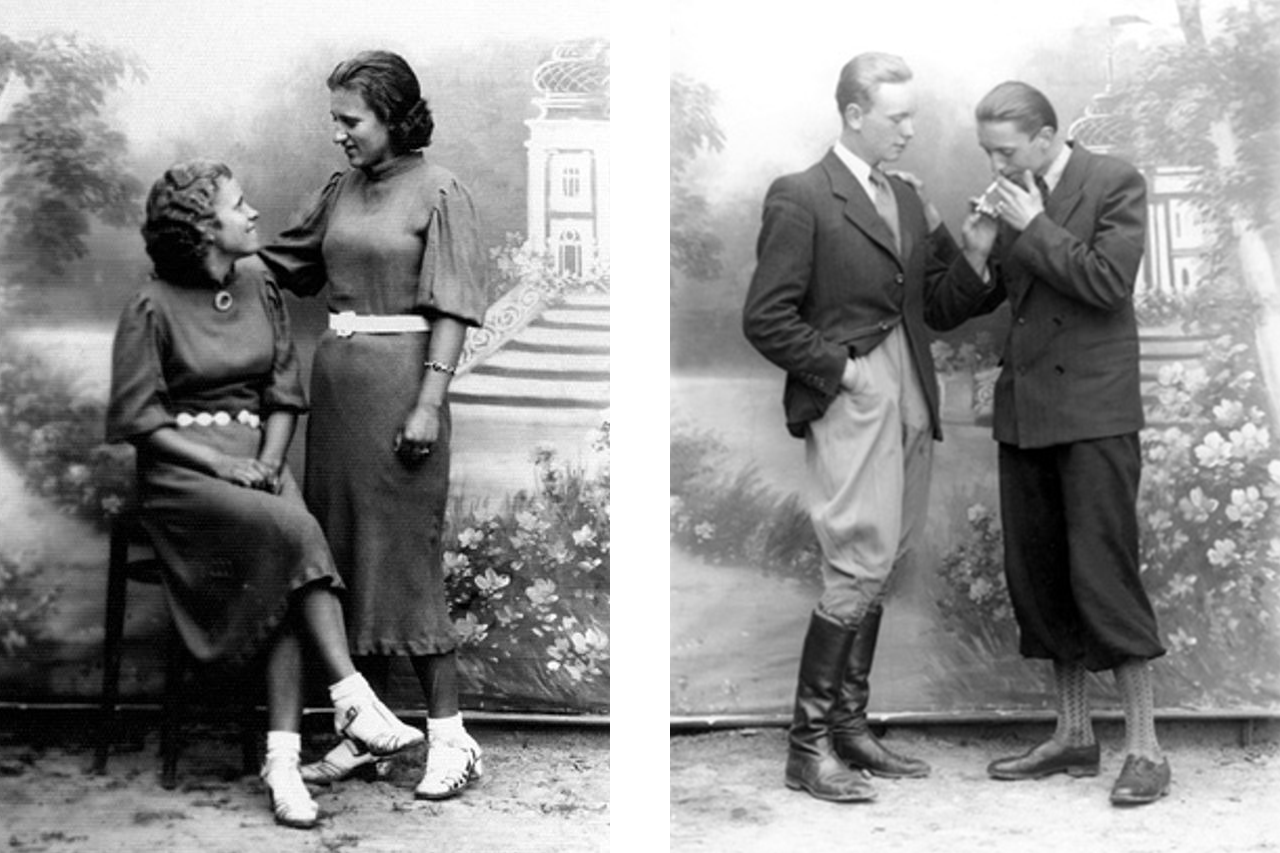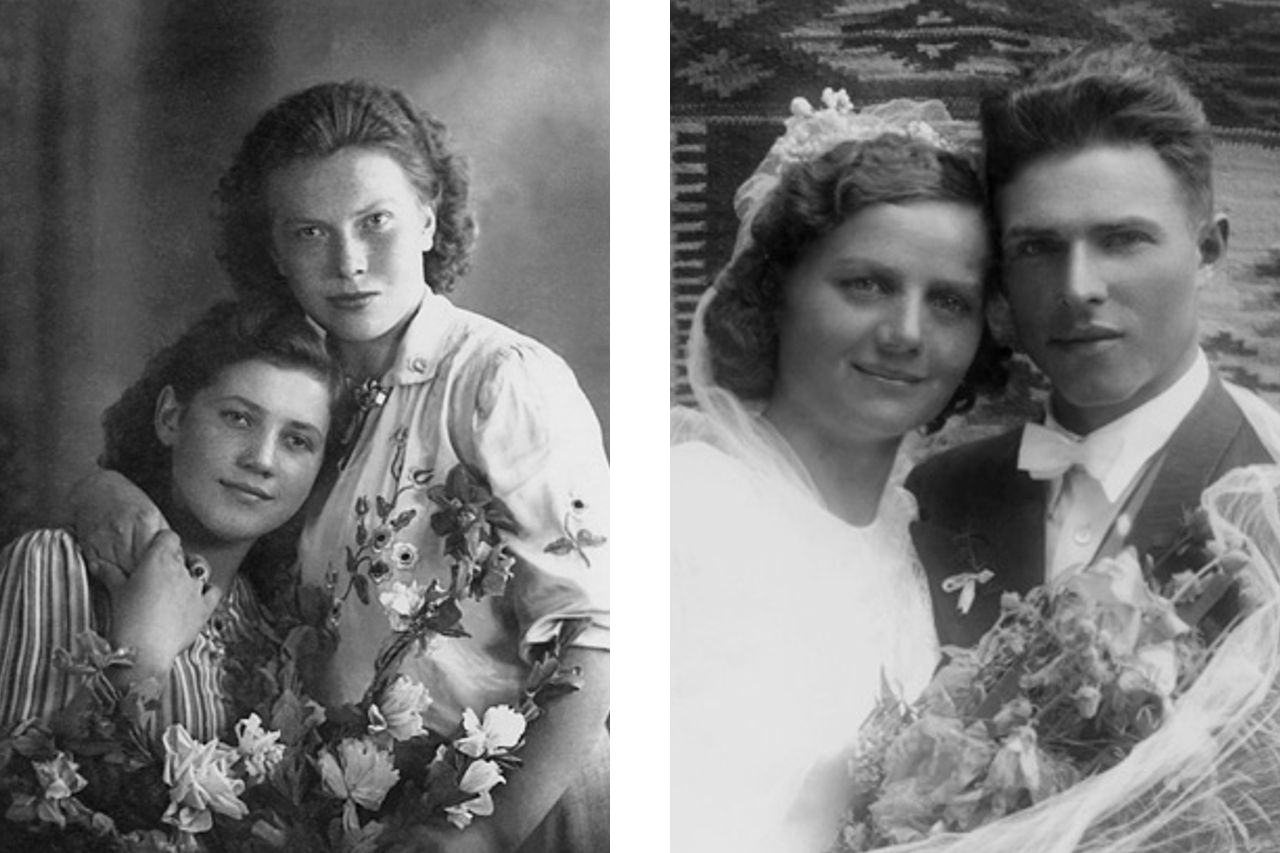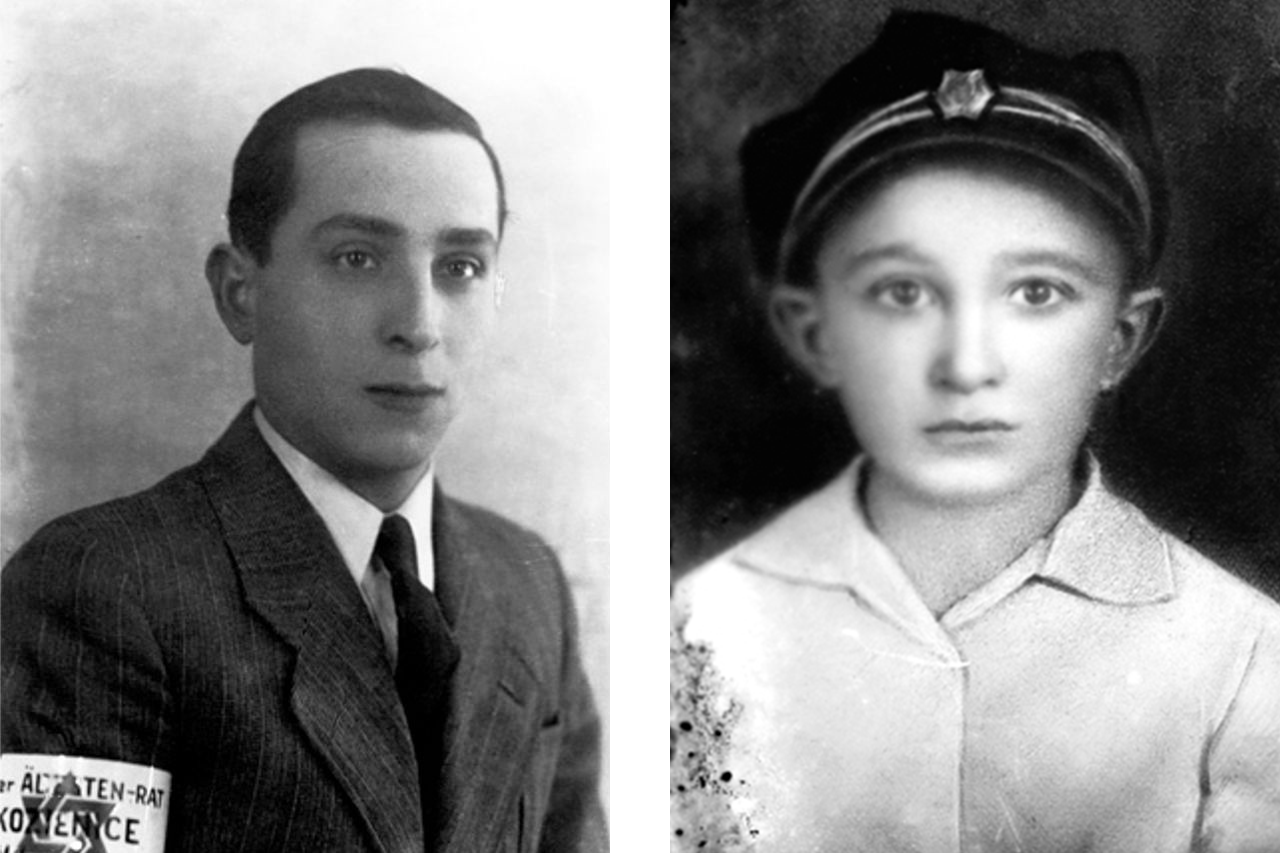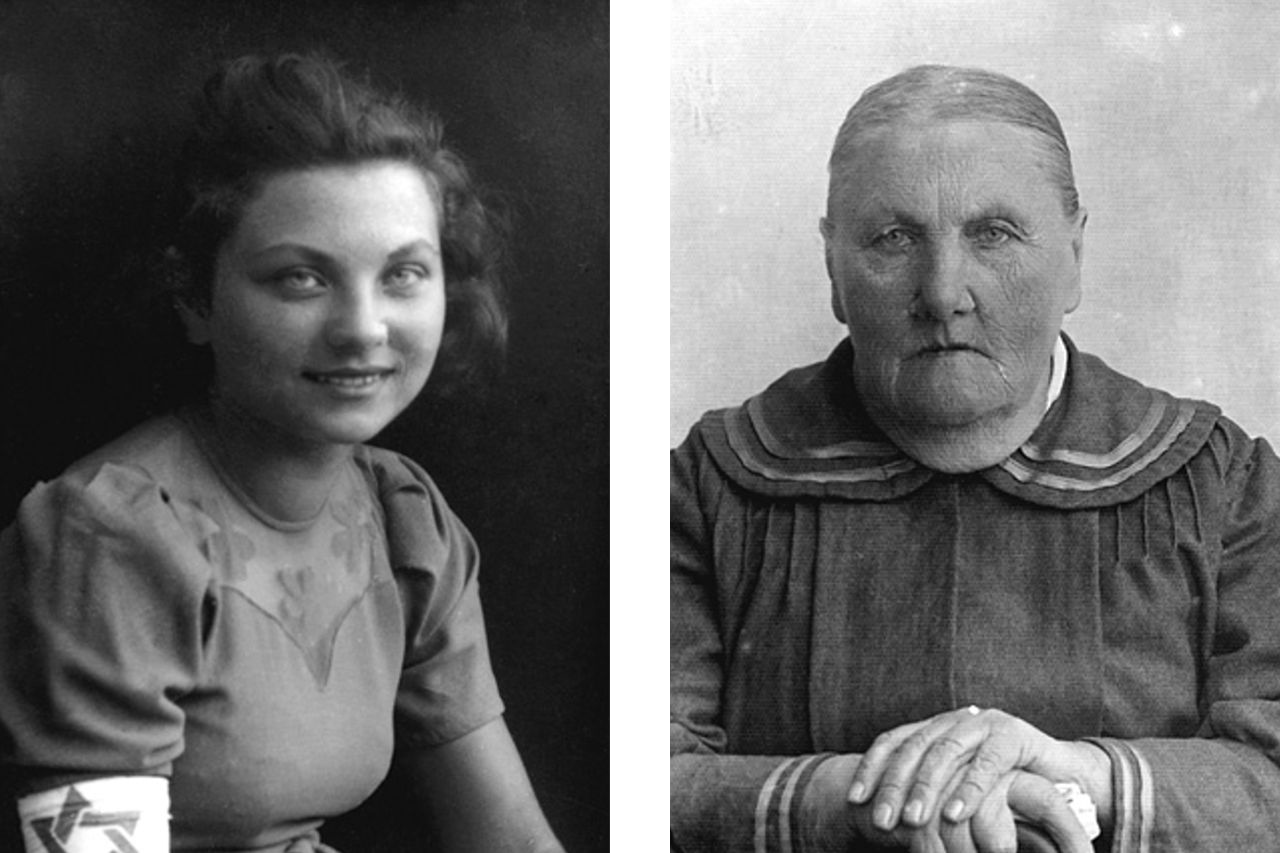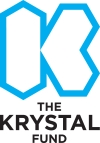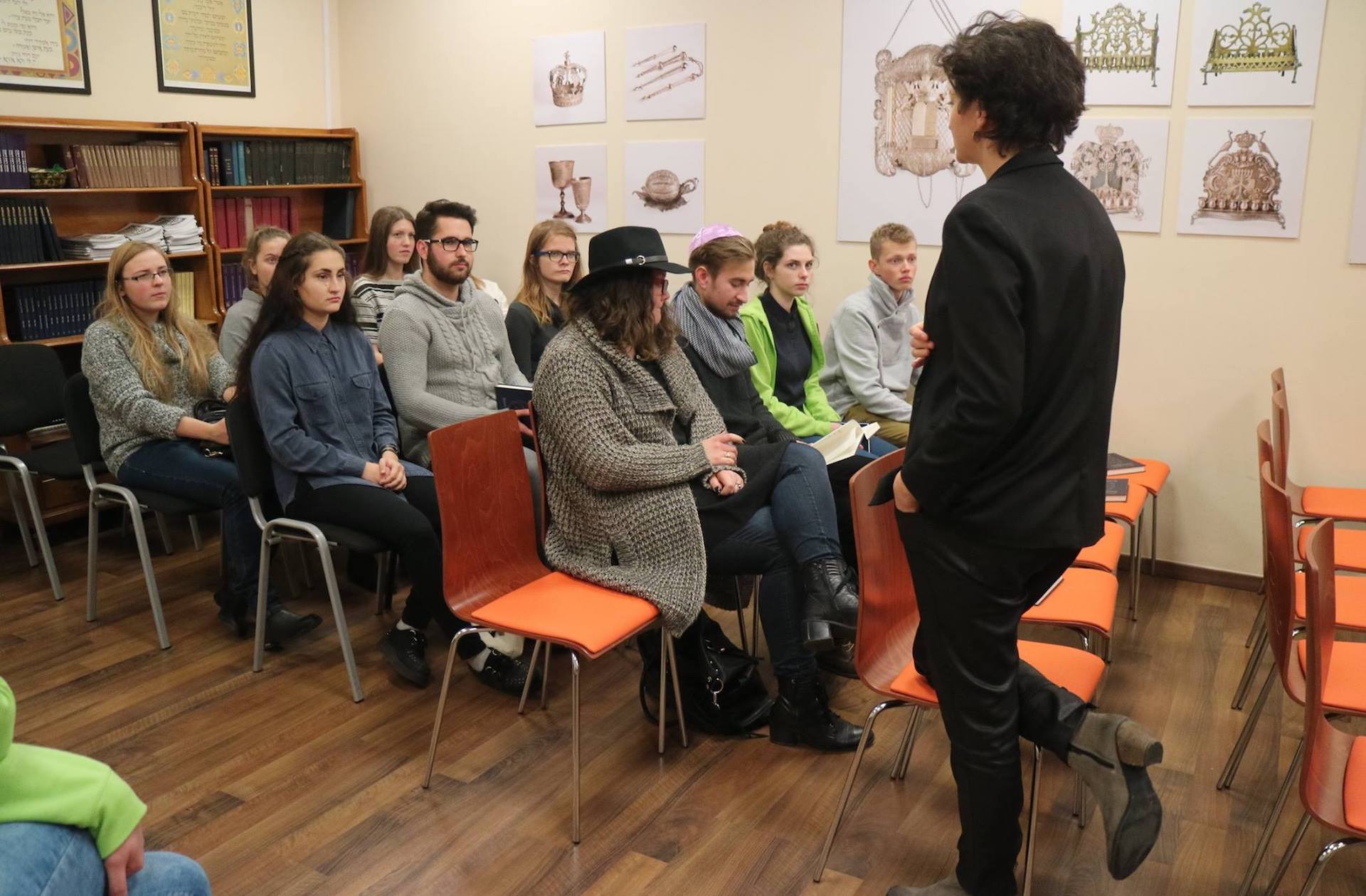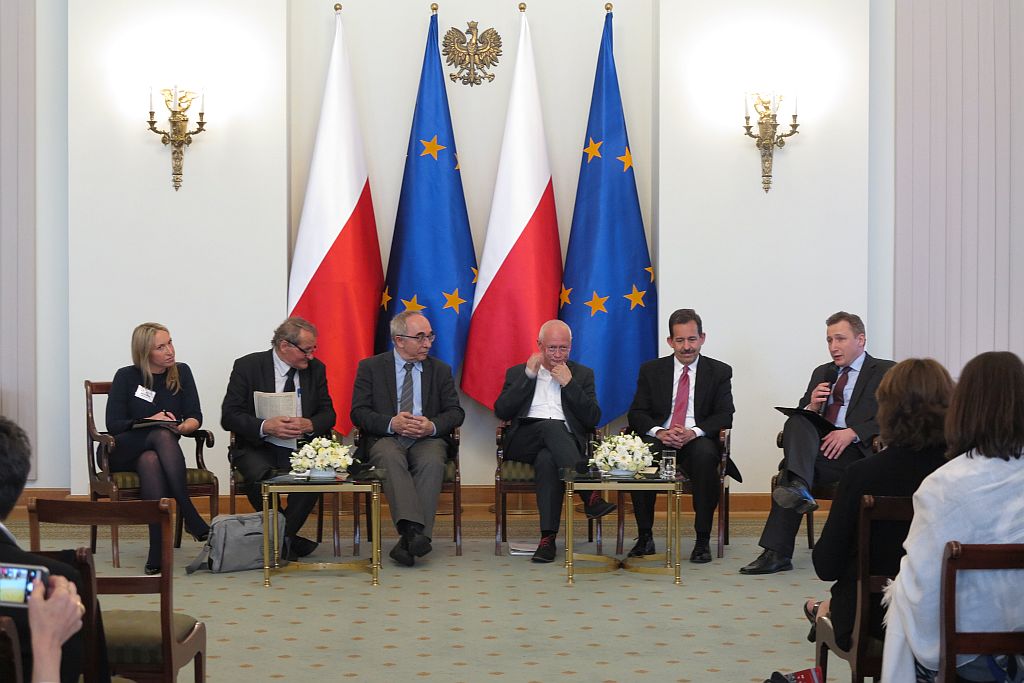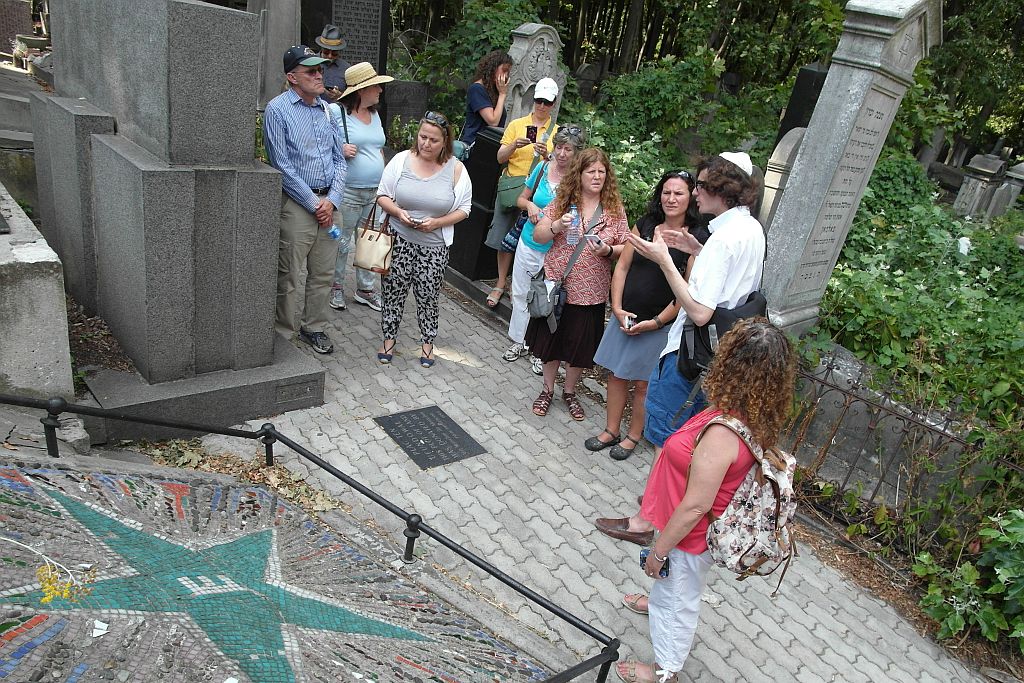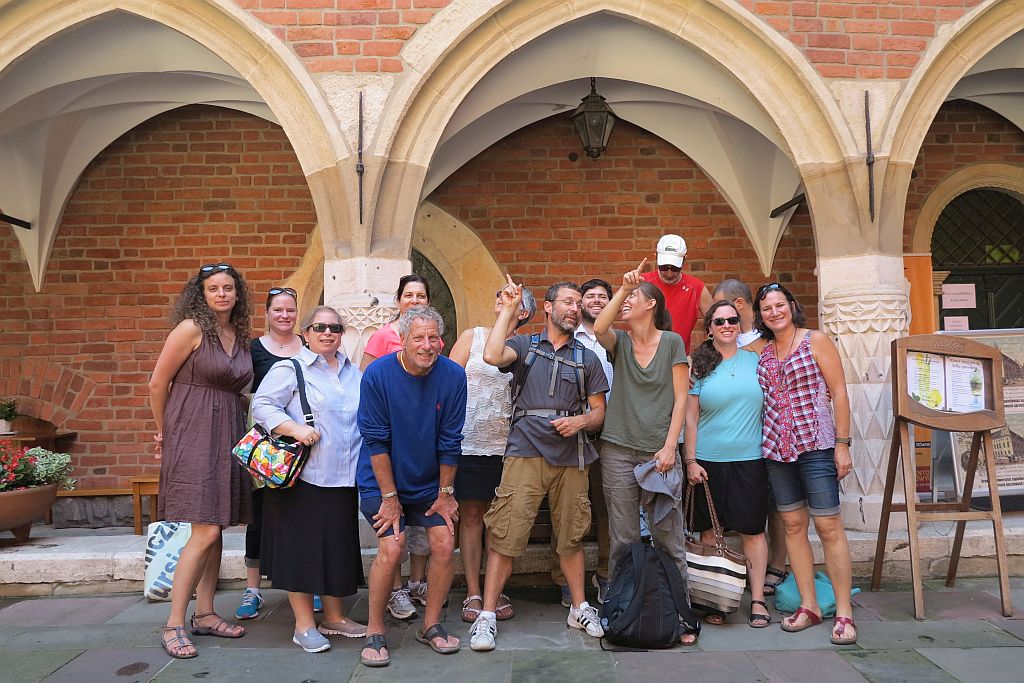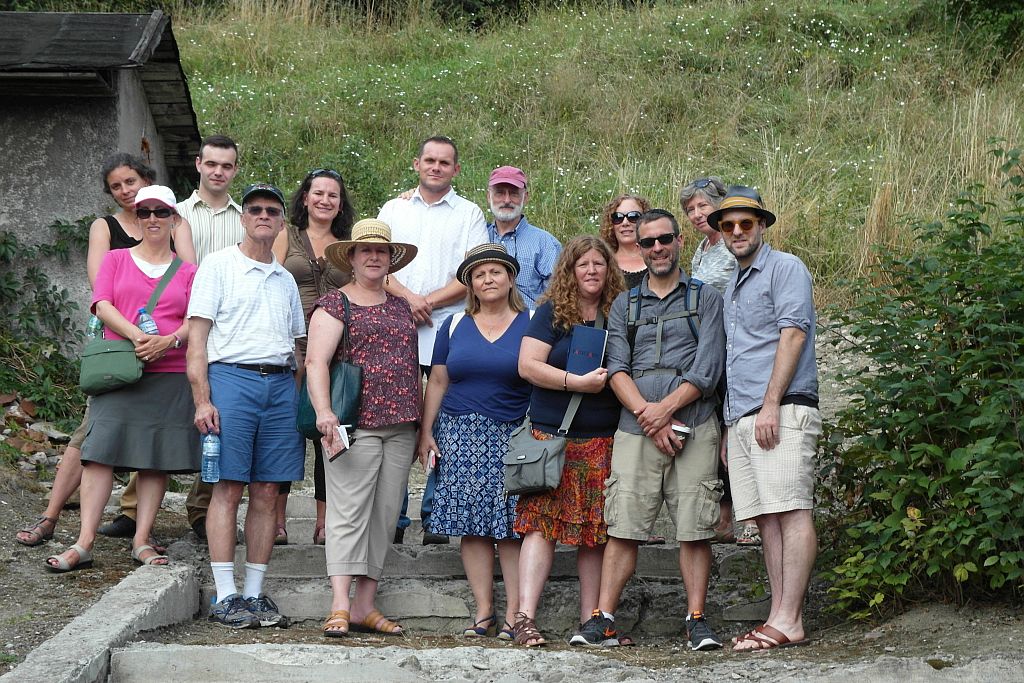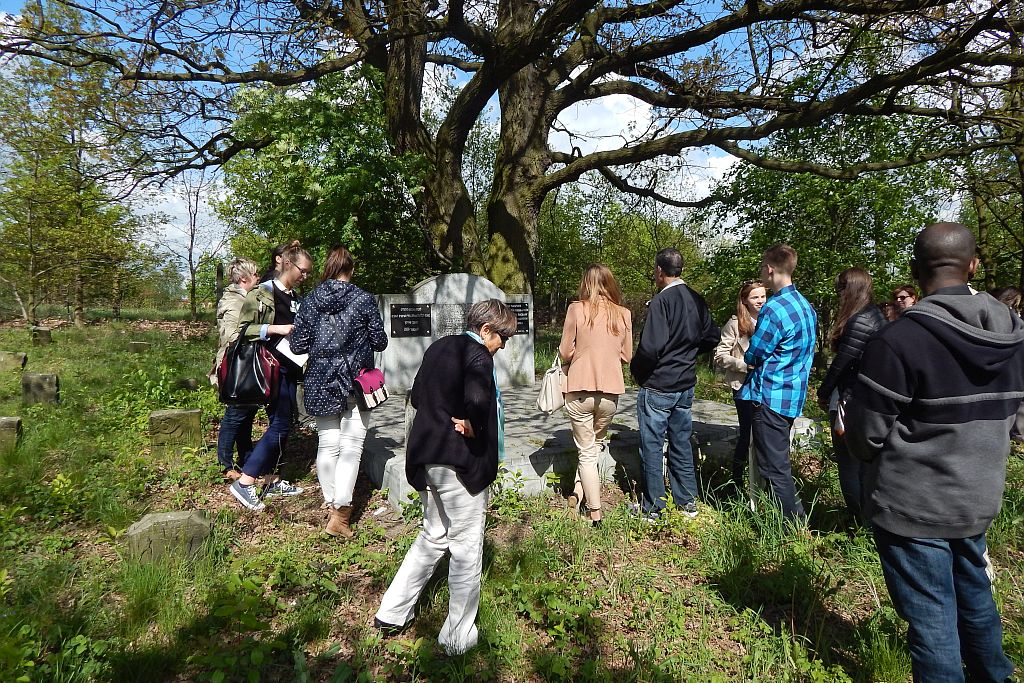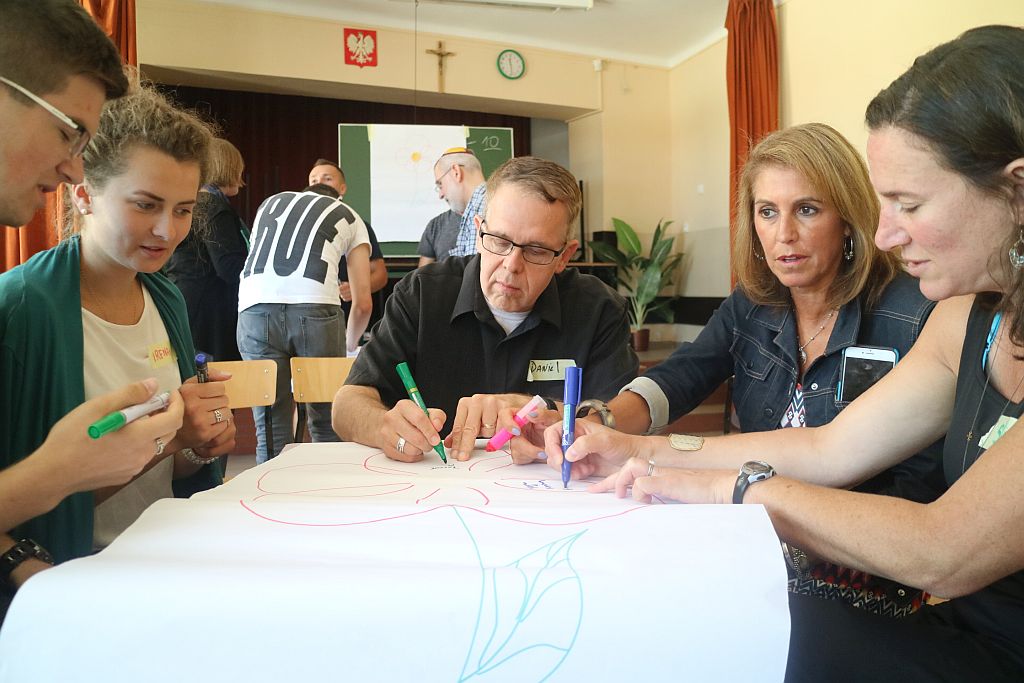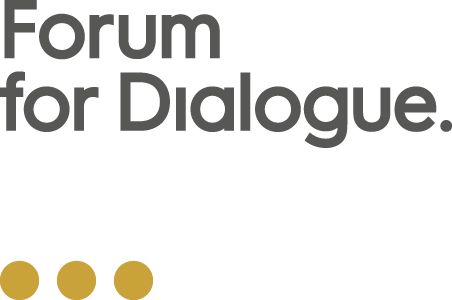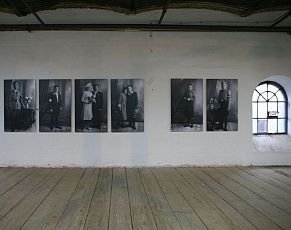
In 2006 Forum for Dialogue organized an art exhibit curated by Bogna Burska, Anka Grupińska and Alina Skibińska entitled Kozienickie portrety (“Kozienice Portraits”). The exhibition presented photographs made off of glass plate negatives discovered after the war originally created by Chaim Berman, a Jewish photographer from prewar Kozienice.
This unique collection presents Jews, Poles and Germans, who lived in the town before the war. It is also a testimony of the short-lived multicultural world that existed but was already marked by the impending end. In 1990s, this rare photograph collection found its way to Karta Center Foundation, who shared it for the exhibition.
The exhibition was shown at the Ethnographic Museum in Krakow during the Jewish Culture Festival, during the Four Cultures Festival in Lodz, and at the Regional Museum in Kozienice. The 47th issue of the Karta quarterly published two articles about the exhibition written by Alina Skibińska and Anka Grupińska.
When this exceptional collection of Kozienice Jews got to Karta Center Foundation in late 1990s, we were convinced that one day their story would be told. Now, thanks to a few years’ work of scholars affiliated with Forum for Dialogue foundation, we can present part of the collection described in as much detail as it was possible.
Alina Skibińska
Justyna Gawełko February 27th, 2017
Posted In: EN Programs Archive
Leave a Comment

When borders between Poland and the Western world reopened after 1989, followed by the reestablishment of diplomatic ties between Poland and Israel, great numbers of Jews young and old started coming to Poland, looking for a connection with the country that for many was the land of their ancestors. Poland was and remains important for many Jews if not because of a personal connection than because it was the site of the Holocaust.
These journeys to Poland were and are very challenging and emotionally demanding, and have been the subject of numerous publications, films or plays. These accounts often depict the miscommunications and alienation the visitors feel when searching for clues about where they came from and what has happened to those members of the family who stayed in Poland, or when seeing what has happened to whatever traces remaining of a once vibrant Jewish community.
At the same time, since the fall of Communism and the newly opened possibilities of a democratic state, after decades of the “Communist freeze” on all things connected to Polish/Jewish past, Poles have begun grappling with their complicated history. Realizing just how much of the shared Polish/Jewish history was simply removed from the collective memory of the population, they also strive to reconnect with the Poland of the past.
Aware that an important link was almost severed between Poland and its Jews, non-Jewish Poles work hard to bring back and keep the memory of the Jews who perished and embrace the Jewish community that is alive: both the small Jewish community in Poland and the larger community abroad.
Since the Polish Jewish community is relatively small in an almost 40 million society, most of the people dedicated to the restoration and preservation of the memory of Polish Jews in Poland rarely have an opportunity to meet a Jew. They spend hours learning about personal stories of Jews who lived in their towns many decades ago, but have never talked with a person who identifies as Jewish.
Forum recognizes that a real and meaningful reconnection between people must happen during face-to-face encounters. This is why since 2010 we have been organizing meetings between Jewish visitors to Poland and participants of our programs in Poland: the School of Dialogue students and Leaders of Dialogue. Our experience is that for both groups these meetings are important stepping stones in rebuilding connections and starting a dialogue. The students and the Leaders feel reinforced when their work is appreciated and recognized as important, the visitors are grateful that there exist a community of people in Poland invested in preserving the memory of Jews alive.
Justyna Gawełko February 7th, 2017
Posted In: Without category
Leave a Comment

Forum’s School of Dialogue students and Leaders of Dialogue go to great pains to learn about and preserve what is left of the Jewish communities of their small towns, but they rarely have an opportunity to interact with representatives of contemporary Jewish community. It is important that these people, dedicated to the Jews of the past, meet Jews of the present. The Jews who come to Poland often do not have a chance to talk with the residents of Poland, focused on a usually demanding itinerary, but their image of contemporary Poland is incomplete without contacting people on the ground. That is why, since 2010 Forum has been organizing Meetings between participants of our programs in Poland and Jewish visitors from abroad, often with familial connections to Poland. Thanks to these meetings the students and the Leaders see that people with an investment in Jewish history of Poland recognize and value their efforts, while the visitors have interested and sympathetic guides to navigate the often-alien landscape of contemporary Poland.
The program is co-financed by Malka and Pinek Krystal Scholarship Fund.
Justyna Gawełko February 7th, 2017
Posted In: Without category
Leave a Comment
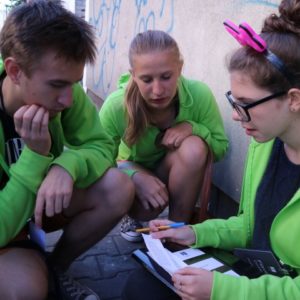
Summer School of Dialogue is a week-long summer field seminar for a group of outstanding School of Dialogue graduates from all over Poland. After a week of intensive workshops, lectures and study visits, participants go back to their hometowns with a deeper knowledge and understanding of the complexities of Polish/Jewish relations. They become Young Leaders of Dialogue. By its nature, School of Dialogue is an egalitarian program, in which each young participant can find a place and a task best suited to his/her capacities.
However, there are always those who get especially involved in Polish/Jewish matters, who have more ideas and motivation for action than they are able to demonstrate in the School of Dialogue program. We believe that we should invest in these students, which is why in 2015 we launched the Summer School of Dialogue program. Summer School of Dialogue is a week-long summer field seminar, during which School of Dialogue participants from all over Poland continue what they had started with activities conducated in their school. They build on this knowledge to become Young Leaders of Dialogue.
fot. M.John, Z.Radzik, M.Pawlak, R.Masna
After a week of intensive workshops, lectures and study visits, participants go back to their hometowns with a deeper knowledge and understanding of the complexities of Polish/Jewish relations. They learn more about the Jewish culture and learn how to effectively and wisely commemorate Jews that had once lived in their towns. During the Summer School of Dialogue, participants visit memorial sites, attend meetings with politicians, scholars and representatives of the Jewish community. They also participate in trainings in project management and social project leadership.
Thus, they can start introducing positive changes in their hometowns, now and in the years to come. One day, we hope to have them shape Polish reality by working in their respective professions, contributing to society through non-governmental activism or through civil service. Young leaders form a group of mutual inspiration and support. At Forum for Dialogue we believe that the Summer School of Dialogue shapes our country’s future elites and their sensitivity to Polish/Jewish issues. There is no school like this one!
Before the Summer School of Dialogue I was a Leader of Dialogue at my school. Having completed the program, I feel I have the support of the Forum for Dialogue. I feel much more confident… Everything is happening so fast… all around me… I am happy to have become a Leader of Dialogue.
Participant of the 2015 Summer School of Dialogue
The School of Dialogue gave me the courage to act. I opened myself to Jews and saw that they are also open to me, which shows that international dialogue is not just a theory, but a reality.
Participant of the 2015 Summer School of Dialogue
The most important lesson learned during my encounter with Jewish history and culture was to listen, which made me unlearn to hastily judge or hate.
Participant of the 2015 Summer School of Dialogue
The week of the Summer School of Dialogue deeply affected my life and enabled me to answer important questions, such as why do we need Polish/Jewish dialogue? I also met wonderful people here and I no longer feel alone in my activism.
Participant of the 2015 Summer School of Dialogue
fot. M.John, Z.Radzik, M.Pawlak, R.Masna
Summer School of Dialogue 2015
In appreciation to the Conference on Jewish Material Claims Against Germany (Claims Conference) for supporting this educator training program. Through recovering the assets of the victims of the Holocaust, the Claims Conference enables organizations around the world to provide education about the Shoah and to preserve the memory of those who perished.

Project co-financed from the funds granted by The Pratt Foundation.

Summer School of Dialogue 2016
In appreciation to the Conference on Jewish Material Claims Against Germany (Claims Conference) for supporting this educational program. Through recovering the assets of the victims of the Holocaust, the Claims Conference enables organizations around the world to provide education about the Shoah and to preserve the memory of those who perished.

The project is supported by the U.S. Embassy in Poland.

Justyna Gawełko February 6th, 2017
Posted In: EN Programs Archive
Leave a Comment
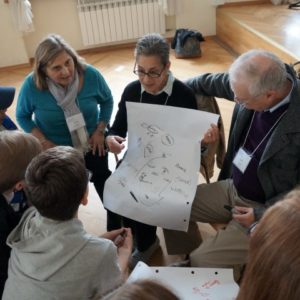
Since 2012 Forum for Dialogue has been cooperating with one of US’s most important educational organizations, Facing History and Ourselves. Founded in 1976 in Boston, FHAO aims to work for a better, more open and just society by fighting xenophobia, anti-Semitism and other discrimination. FHAO works with teachers, helping them use history, social sciences and psychology to help their students become ethical human beings capable of critical thinking.
Initiating our cooperation, the Forum team took part in program consultations with Facing History and Ourselves in 2012. In 2014, we had an opportunity to help plan a visit to Poland for Facing History staff and board members, who got to meet students of five School of Dialogue schools. In 2016 Forum representatives were invited to the annul seminar on teaching about the Holocaust organized in Brookline, MA and New York. So far the most important element of our cooperation, started four years ago, have been annual study visits organized by the Forum for Jewish-American teachers working with Facing History and Ourselves. The week-long program focuses on the past and present of Polish/Jewish relations. The experience gathered in Poland is later used by the teachers in their classes devoted to teaching about the Holocaust, Jewish identity or Judaism.
For most Facing History participants, this visit is their first time in Poland. The week spent with the Forum in Poland is an opportunity to examine various ideas and notions they may have in a new way. The visit, which is often a very moving personal experience, impacts the way the teachers structure and teach their classes. The participants are obliged to use some of the knowledge gained in Poland in their work with students, but it is up to them what they will chose and how. The class may concern the post-1989 transformation, Polish literature, memory, the Holocaust, Yiddish writers and their connections to Poland, or the Warsaw Uprising. In this way, the visit affects the work of teachers who take part in the program.
I feel privileged to be part of the Forum team through Facing History and intent to use my new found learning to design a different and more nuanced trip to Poland for my students – one that engages the narratives that we explored this week.
Shoshanah Zaritt, head of Junior and Senior Programs, Gann Academy in Waltham, Massachusetts
fot. M.Kirschenbaum, E.Bartosik, I.Meyza
Justyna Gawełko February 6th, 2017
Posted In: EN Programs
Leave a Comment
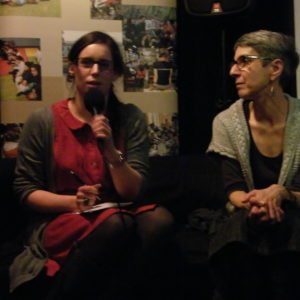
Through cooperation with Jewish Motifs Association that lent us a copy of the film, during the meeting at Chłodna25 café club held on March 15, 2012 we were able to screen “Hiding and Seeking” by Menachem Daum. A conversation with Helise Lieberman, director of Taube Centre for Jewish Cultural Revival, followed the screening. Both the film and the discussion pertained to the attitudes of American Jewish diaspora towards Poland and the Poles – a topic that is often a source of controversies and discussions in the media among politicians and those involved in Polish-Jewish dialogue. The terms used by American media about contemporary Poland and Polish history (such as the infamous “Polish concentration camps”) raise bewilderment and strong opposition from the Poles, Polish Americans as well as Jewish communities.
On the other hand, Poland attracts more and more Jewish American visitors, as the thousands of participants in March of the Living or many Americans visiting their families’ hometowns demonstrate. More and more often, English can be heard at Jewish Culture Festivals, more and more American Jews decide to settle in Poland – running their businesses, conducting research or working in culture. We discussed whether it is likely that the image of Poland among American Jews will change with Helise Lieberman, a Jewish American who has been living in Poland for over twenty years.
Justyna Gawełko January 25th, 2017
Posted In: EN Debates Series on Chłodna
Leave a Comment
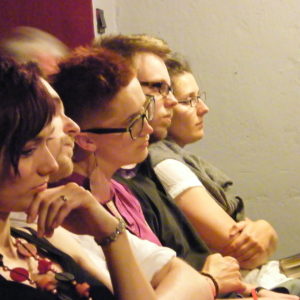
The second meeting in the “Forum at Chłodna” series was held on May 21, 2012 under the title “A Neighborhood or a Cemetery? Do and How Varsovians Remember About the Ghetto” and proved to be a big success. Over sixty people visited Chłodna25 café to listen to guest speakers invited by the Forum. Discussion panelists included Elżbieta Janicka – literature scholar, author of “Festung Warschau”; Maria Lewicka – psychology professor at University of Warsaw; and Jacek Leociak – literature scholar, member of the Polish Center for Holocaust Research. The discussion was led by Michał Bilewicz – vice president of Forum for Dialogue, head of Prejudice Studies Center at the University of Warsaw.
Justyna Gawełko January 25th, 2017
Posted In: EN Debates Series on Chłodna
Leave a Comment
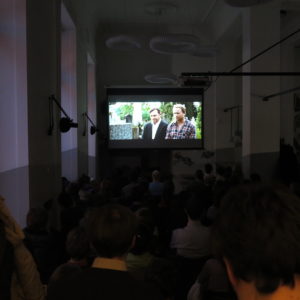
“I couldn’t have done otherwise” says Józef Kalina in the film “Aftermath” (Pokłosie). He couldn’t have done otherwise, although his neighbors deemed him a lunatic, his wife left him and as time went on, he had to pay an increasingly higher price for his deeds. “I couldn’t have done otherwise” is a statement that could be uttered by many individuals who became involved in remembering about local Jews, caring for the Jewish cemeteries, addressing the painful past, taking on the responsibility to remember.
We wanted to talk to individuals who stumbled upon this subject matter and have not been able to not do something about it ever since: they maintain Jewish cemeteries not caring what others will say; they run cultural institutions, although this is not always a walk in the park and everyone considers them to be crazy. They force themselves and others to remember about the tragic events, even when they are intimidated or shunned. But their work also brings satisfaction, words of gratitude and a sense of fulfillment. For all these reasons, a special screening of “Aftermath” was organized on February 21, 2013 in Państwomiasto café club. It was followed by panel discussion with Bogdan Białek (chair of Jan Karski Society from Kielce), Witold Dąbrowski (deputy director of Grodzka Gate Center – NN Theater in Lublin) and Grzegorz Kamiński (teacher from Toszek in Gliwice region).
Already in the 1980s, Bogdan Białek started discussing the Kielce pogrom. In 1981, he resigned from his post as delegate to the regional “Solidarity” convention to protest against anti-Semitic remarks of some of the other delegates.
Thanks to his intervention, local authorities were responsible for commemorative ceremony on the 50th anniversary of the Kielce pogrom. The society Białek established works to have Kielce citizens actively engage in the Polish-Jewish dialogue. For Witold Dąbrowski the story began in 1992, when NN Theater (established in 1990) obtained new headquarters in the ruined building of Grodzka Gate. Beyond the gate extends the empty space of the destroyed Jewish district. NN theater founders realized that it is their duty to care for the non-existent Jewish Lublin. Today, through unique exhibitions as well as education and artistic initiatives Grodzka Gate – NN Theater tries to remind the local population of Lublin’s Jewish inhabitants. Ten years ago, Toszek teacher Grzegorz Kamiński and a group of students from the local elementary school cleaned the Jewish cemetery in Wielowieś, where Kamiński worked. Since that time, Kamiński and local youth (school students, archers and scouts) maintain all Jewish cemeteries in Wielowieś, Toszek, Pyskowice, Sośniowice – in all of the Gliwice country. On November 9, 2012, Kamiński unveiled a plaque commemorating the Toszek synagogue.
In reference to the film, but first and foremost to our guests’ work, we asked where this sense of responsibility comes from. What is the price to pay, what are the gains? What are the joys and sorrows connected to activism in the “J-letter topic”?
Justyna Gawełko January 25th, 2017
Posted In: EN Debates Series on Chłodna
Leave a Comment
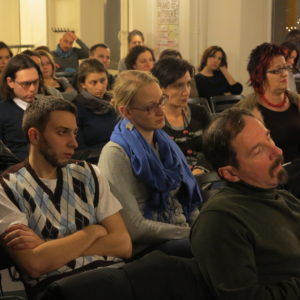
What do pergolas in Forester’s Park (Park Leśnika) in Warsaw’s Praga district have in common with the Jewish cemetery in Bródno district? And what does the wall around the Catholic cemetery in Ostrowiec Świętokrzyski share with a local Jewish cemetery? Why are there bones sticking out of the ground next to the local high school soccer pitch? What happened to the Jewish graves? What have we done with them?
There are around 1200 Jewish cemeteries in Poland today, 400 of them did not survive the war. Only 150 can boast more than one hundred headstones. Destroyed by Germans in the course of World War II, it was not uncommon for these cemeteries to be turned into sandboxes, school sports fields or municipal parks in later years. Forgotten, they would overgrow.
Headstones were used by Nazis to pave roads and courtyards or to stabilize riverbanks. Soon after the war, Poles would use them to make whetstones, build cowsheds, pavements, sandboxes and even outhouses. Even today, matzevot can be found in foundations, walls and workshops with the Hebrew inscriptions and names of persons whose graves they adorned still visible.
On January 24, 2013, Łukasz Baksik, author of the “Matzevot of Everyday Use” photo album and exhibition and Agnieszka Nieradko from the Rabbinical Commission on the Jewish Cemeteries in Poland discussed what we have done to the Jewish graves and why matzevot are still embedded in the infrastructure of our cities. The meeting was held in Państwomiasto club-café.
In a center of a small town, right next to the church and police and fire stations, I find a farmhouse with a cowshed built from matzevot. I encounter Catholic tombstones with Hebrew inscriptions that someone forgot to remove. I talk to people who – aware of what you can find in their backyards – see nothing wrong in the situation.
Łukasz Baksik
Justyna Gawełko January 25th, 2017
Posted In: EN Debates Series on Chłodna
Leave a Comment
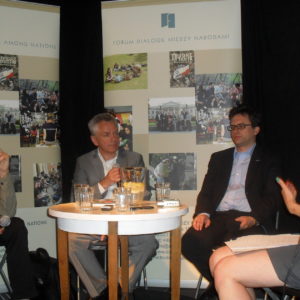
Flags sporting fascist symbols, anti-Semitic songs, slurs against rival teams, graffiti on the walls of Łódź, Kraków and many other cities. In 2011 we saw the infamous banner “Jihad Legia” during the match with Hapoel Tel Aviv. Resovia hooligans painted a graffiti in Rzeszów that read “Being a Jew is a shame” against their rival team, Stal Rzeszów fans called Resovia fans “f***ing Jews”. The soccer chant „Hamas, Hamas, Jude auf dem Gas!” („Hamas, Hamas, Jews to the gas!”) sung by Legia hooligans during a match against Widzew Łódź. „Jude, Jude Cracovia” chanted by fans Ruch Chorzów, the match’s hosting team. Why being a soccer fan involves anti-Semitism, racism and violence and does it have to be this way?
This topic was discussed in one of the meetings of “Forum at Chłodna” series by Michał Okoński (deputy editor-in-chief of “Tygodnik Powszechny”, creator and blogger at “Futbol jest okrutny”– Soccer is Cruel), Rafał Pankowski (cultural sociologist, scholar of the far right movement, coordinator at the Center for Monitoring Racism in Eastern Europe, deputy editor-in-chief of Nigdy Więcej – Never Again magazine) and gen.Adam Rapacki (general of the police, former undersecretary of state of Polish Ministry of Interior who was chaired the Sports Events Security Council). The meeting was hosted by Zuzanna Radzik, Forum for Dialogue board member.
Justyna Gawełko January 25th, 2017
Posted In: EN Debates Series on Chłodna
Leave a Comment
Next Page »
